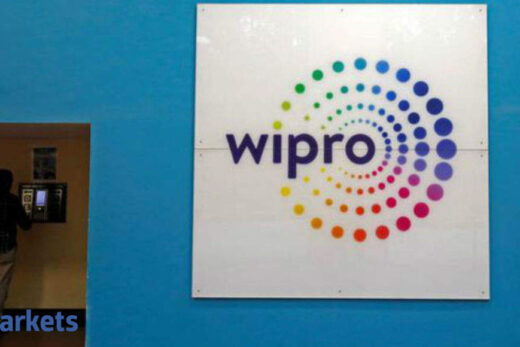Now, the company expects growth to be almost equal in both rural and urban markets for FMCG products this fiscal unlike last financial year when the rural markets recorded higher growth.
A leading player in the FMCG space, Wipro Consumer Care & Lighting is not anticipating any further increase in the price of Santoor soaps, one of its popular products, as prices of palm oil have cooled down a little. Palm oil is a key ingredient for making soaps.
In March and June, the company had increased the price of the soap and the total hike was around eight per cent.
With online channels witnessing almost a two-fold sales growth in various FMCG segments, the company would also be introducing more e-commerce first products.
Wipro Consumer Care & Lighting CEO and Wipro Enterprises Executive Director Vineet Agrawal said the trend of increased sales through online channels is expected to stay.
About the impact of COVID second wave on business in the April-June quarter, Agrawal said it was “challenging” for the Indian business and pointed out that this time both urban and rural markets have been impacted.
“This time the rural (market) got impacted significantly higher than last time,” he said during a virtual media round table.
To a query on whether rural markets would grow faster than the urban market like previous year, he said, “I don’t think so”.
“I think this year both rural and urban growth would be equal. It could be marginally higher in the rural but not double,” he noted.
After the first wave, rural markets had recovered quickly and reported almost double growth compared to the urban markets.
Santoor soaps makes up the largest chunk of its FMCG brands in India. Almost 50 to 55 per cent of the soap sales come from the rural areas while for ayurvedic soap Chandrika and Yardley, the market share is around 85 per cent.
“The India business had impressive growth and perhaps we had the best growth in the Indian FMCG industry. We grew at 17.3 per cent in FMCG business in India and our volume growth was about 14.8 per cent,” he said.
Agrawal said the international market has also done well. In markets like Philippines and South Africa, where the company acquired businesses, the growth was in double digits.
“It was relatively better but by the end of June (there were) high (number of) cases in Indonesia, Malaysia, Taiwan and in South Africa. Philippines was bad but now its coming out of it. In Indonesia and Taiwan, the (number of) cases are peaking. Malaysia is below its peak,” he said.
In the last four months, it has done two investments in healthcare brands — Onelife and MyGlamm.
In the FMCG segment, around 60 per cent of the company’s sales come from the international market.
On plans to acquire new brands, Agrawal said the company is always in talks but after the pandemic companies have taken a hit and their valuations have declined. Hence, promoters of such companies do not want to sell at a lower than expected price, Agrawal said.
About e-commerce growth in the last fiscal, Agrawal said e-commerce is the driver in every country where it operates, though the volume is still low, including in India. E-commerce has given almost 100 per cent growth in all the markets where Wipro operates, he added.
The company is introducing several e-commerce first brands for the FMCG segment.
“We have identified four brands, which would go e-commerce first,” he said. Two brands — vitreous, a Philippines-based conditioner brand, and Biossance, a skincare brand using Chinese ingredients, have already been introduced in the e-commerce space.
“We have body washes which will come out, in e-commerce first brands… these two will happen in July,” he said.
Wipro Consumer Care & Lighting has presence in 20 countries, predominantly in India, Asia, Africa, and the Middle East. It has 16 manufacturing units in India, Malaysia, Indonesia, the Philippines, Vietnam, China and South Africa.



